Department Of Geology Introduce
Assalamu Alaikum, curious minds and future scientists of Khyber Pakhtunkhwa! Our beautiful province is blessed with incredible natural landscapes, diverse geological features, and abundant resources hidden beneath its surface. Understanding these natural wonders and harnessing their potential responsibly requires specialized knowledge and skills in the field of Earth Sciences. Today, we invite you to explore a crucial academic center that is dedicated to this very purpose: the "Department of Geology" in Dhodial.
The Department of Geology in Dhodial plays a pivotal role in educating the next generation of geologists, environmental scientists, and resource managers in our region. Geology is a fascinating discipline that delves into the Earth’s structure, processes, and history, from the formation of mountains to the distribution of minerals and water resources. For students across Khyber Pakhtunkhwa who are intrigued by the natural world, interested in environmental challenges, or aspire to careers in industries like mining, oil and gas, or civil engineering, a degree from a dedicated geology department offers a robust foundation.
Choosing a university department for specialized studies is a significant decision. It's about finding a place that provides not only a strong theoretical understanding but also practical field experience, which is indispensable in a field like geology. While a phone number for direct contact to the department itself was not found in the provided information, general contact for Hazara University (which houses the Department of Geology in Dhodial) is available, hinting at its affiliation and academic standing. For those eager to contribute to the sustainable development and environmental stewardship of our province, the Department of Geology in Dhodial presents an invaluable opportunity to gain the expertise needed to succeed in these vital areas.
Being situated in Dhodial also means the department is part of a larger academic ecosystem, likely affiliated with a prominent university like Hazara University, which has its campus in Dhodial. This affiliation would ensure standard academic infrastructure and a supportive environment. The geographical code "C7C3+H64" provides a precise location, enabling easy navigation using digital maps for those unfamiliar with the exact spot. For local students, the convenience of studying geology within their own division reduces the need to relocate to distant cities, allowing them to pursue specialized education close to home and family, which is a significant advantage in our society.
- BS Geology (4-Year Program): This is the flagship undergraduate program. It typically covers a wide range of subjects, including Physical Geology, Geomorphology, Principles of Stratigraphy, Structural Geology, Mineralogy, Petrology, Economic Geology, Environmental Geology, Hydrogeology, and Petroleum Geology. The curriculum includes both theoretical components (lectures) and practical components (lab work and fieldwork).
- Field Experience / Internships: Geology is inherently a field-based science. The program likely includes mandatory fieldwork components, such as field trips to various geological sites within Pakistan (e.g., Peshawar Basin, Himalayas) to provide hands-on experience in geological mapping, data collection, and observation. Internships with relevant industries (e.g., Geological Survey of Pakistan, oil and gas companies, mining firms) may also be part of the program, offering practical exposure.
- Laboratory Facilities: Access to well-equipped laboratories is crucial for geology students. These labs would typically support practical work in optical mineralogy and petrography, geochemistry, sedimentology, structural geology, and potentially geophysics.
- Capstone Project (Thesis): Towards the end of their BS program, students often undertake a research-based capstone project or thesis, allowing them to delve deeper into a specific geological topic and apply their acquired knowledge.
- Interdisciplinary/Allied Courses: The curriculum often includes interdisciplinary courses like Geophysics, Inorganic Chemistry, and relevant social sciences/humanities courses to provide a holistic educational experience.
- Core General Education Courses: Standard university general education courses such as English, Mathematics, Statistics, Islamic Studies/Ethics, and Information and Communication Technologies are integrated into the curriculum to provide a well-rounded education.
- Faculty Guidance and Research Opportunities: Students benefit from the guidance of experienced geology faculty. Opportunities for participation in faculty research projects might also be available for interested students.
- Specialized Geological Education: The department provides focused and in-depth education in geology, a field crucial for understanding natural resources, environmental processes, and infrastructure development in Pakistan, particularly in a geologically active region like Khyber Pakhtunkhwa.
- Comprehensive BS Geology Curriculum: The 4-year BS Geology program is designed to be comprehensive, covering both fundamental geological principles and applied aspects such as petroleum geology, economic geology, and environmental geology, making graduates versatile.
- Emphasis on Fieldwork and Practical Learning: A significant highlight is the mandatory inclusion of field experiences and potential internships. This hands-on approach to learning in diverse geological terrains (like the Himalayas and Peshawar Basin) is invaluable for developing practical skills essential for a career in geology.
- Relevance to Regional Geology and Resources: Being located in Khyber Pakhtunkhwa, the department is ideally positioned for studying the local geological formations, mineral deposits, and water resources, providing students with direct relevance to their immediate environment.
- Qualified Faculty: While specific details about faculty were not provided, departments within reputable universities typically employ experienced and qualified academics who can impart both theoretical knowledge and practical insights into the field of geology.
- Contribution to Regional Development: Graduates of a geology department play a crucial role in sectors like mineral exploration, water resource management, infrastructure development, and disaster mitigation, directly contributing to the economic and environmental well-being of Khyber Pakhtunkhwa.
- Laboratory Resources: To support practical learning, the department would be equipped with various geological laboratories (e.g., for petrography, mineralogy, sedimentology) necessary for scientific analysis and research.
- Career Prospects: A degree in geology opens doors to various career paths in government organizations (like Geological Survey of Pakistan, WAPDA), oil and gas companies, mining industries, environmental consultancy firms, and academia.
- Affordable Tuition Fees: Public universities generally offer highly subsidized or affordable tuition fees compared to private institutions, making higher education accessible to a broader segment of the population in Khyber Pakhtunkhwa.
- Merit and Need-Based Scholarships: Universities often have a range of scholarship programs for high-achieving students (merit-based) or those facing financial hardship (need-based). Students of geology might be eligible for such scholarships, or specific scholarships tied to Earth Sciences.
- HEC and Government Scholarships: Students enrolled in public university departments are eligible to apply for various scholarships offered by the Higher Education Commission (HEC) of Pakistan or provincial governments, which can cover tuition, living expenses, or both.
- Research Grants and Assistantships: For senior undergraduate students or those pursuing advanced degrees, opportunities for research grants or assistantships (where they assist faculty in research in exchange for financial support) might be available.
- Access to University Facilities: Enrolled students gain access to the broader university's facilities, which might include libraries, sports complexes, student housing, and career counseling services, adding value to their educational experience.
For precise information on fee structures, admission criteria, and any available scholarships or financial aid, interested individuals should directly contact the admissions office of the university with which the Department of Geology Dhodial is affiliated (likely Hazara University) or the department itself.
For detailed inquiries, admission procedures, or any other information regarding the Department of Geology in Dhodial, you can typically reach them through the contact details of the university it is affiliated with. Based on public information, this department is likely part of Hazara University, Dhodial.
- Address: C7C3+H64, Dhodial, Pakistan (This is the specific location of the Department of Geology)
- General University Contact (Hazara University):
- Phone: 0997-414190
- Mobile Phone: +92-310-5345345
- Email: ssc@hu.edu.pk (This is the email for student service center, Hazara University)
Prospective students are strongly encouraged to utilize these university contact details or visit the Department of Geology in person at the Dhodial campus to get the most accurate and specific information about their programs, faculty, facilities, and admission processes.
Firstly, its location in Dhodial, within the Hazara Division, makes it highly convenient for students from across this part of Khyber Pakhtunkhwa. The ability to pursue a specialized university degree close to home reduces the financial and logistical burdens of relocating, allowing students to maintain strong family ties while focusing on their studies. This regional accessibility ensures that aspiring geologists from our own communities can access quality education without significant barriers.
Secondly, the discipline of geology holds immense importance for Khyber Pakhtunkhwa. Our province is rich in diverse geological features, mineral resources, and active seismic zones. A strong local geology department is crucial for understanding these natural aspects, managing resources sustainably, mitigating geological hazards, and contributing to infrastructure development. Graduates from this department will be uniquely positioned to contribute to the economic prosperity and environmental stewardship of their own region.
Furthermore, the emphasis on fieldwork and practical learning within the BS Geology program is a significant advantage. Given the varied geological landscapes of Khyber Pakhtunkhwa, students will have invaluable opportunities for hands-on experience, making their education directly relevant to the local context and enhancing their employability within regional industries and government sectors like the Geological Survey of Pakistan or WAPDA.
In conclusion, the Department of Geology in Dhodial is more than just an academic center; it is a vital contributor to the intellectual and practical capital of Khyber Pakhtunkhwa. For local students, it offers a pathway to a meaningful career in a field that is directly relevant to the development and well-being of our province. By choosing to study geology here, students are not only pursuing a passion but also actively preparing to become vital contributors to the future of our cherished Khyber Pakhtunkhwa. It's a place where the secrets of our land are uncovered, and the stewards of our natural heritage are nurtured.
Department Of Geology Photos
Department Of Geology Location
Department Of Geology
C7C3+H64, Dhodial, Pakistan
-
Department Of Geology
C7C3+H64
 Department of Conservation Studies
Department of Conservation Studies
Department Of Archaeology
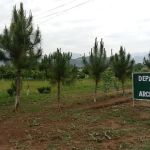 Department of Archaeology
Department of Archaeology
C7C3+H6R
 Department of Microbiology
Department of Microbiology
Department of Microbiology
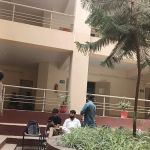 Department of CS & IT Hazara University Mansehra
Department of CS & IT Hazara University Mansehra
9
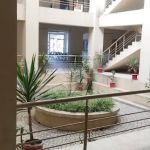 Department of Telecommunication
Department of Telecommunication
C793+Q67
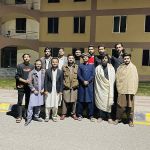 Psychology Department
Psychology Department
C793+M9P
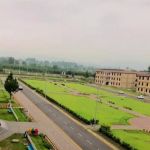 Hazara University Mansehra
Hazara University Mansehra
Dhodial
 Biotechnology Department
Biotechnology Department
C792+JMM
 DEPARTMENT OF PHARMACY BLOCK 6
DEPARTMENT OF PHARMACY BLOCK 6
C793+GG9
 Department of Bioinformatics
Department of Bioinformatics
Ist Floor
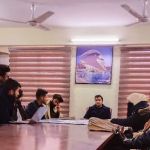 Department of Public Administration
Department of Public Administration
C793+93C
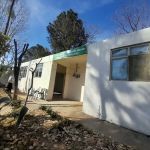 H.U Horticulture Mushroom House
H.U Horticulture Mushroom House
Faculty of Education
Department Of Geology Reviews
More University
 Department of Conservation Studies
0.0 (0 reviews)
Department of Conservation Studies
0.0 (0 reviews)
Department Of Archaeology, Dhodial, Pakistan
 Department of Archaeology
4.0 (6 reviews)
Department of Archaeology
4.0 (6 reviews)
C7C3+H6R, New Balakot City Rd, Dhodial, Pakistan
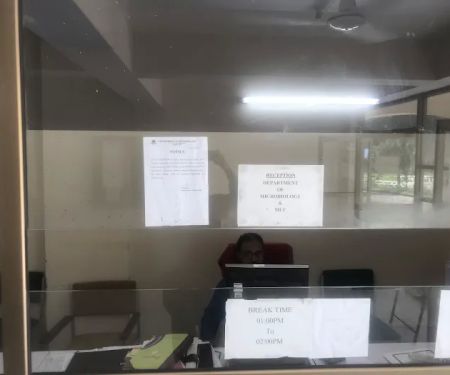 Department of Microbiology
5.0 (6 reviews)
Department of Microbiology
5.0 (6 reviews)
Department of Microbiology, Academic Block 9,Floor 2, Hazara University, Pakistan
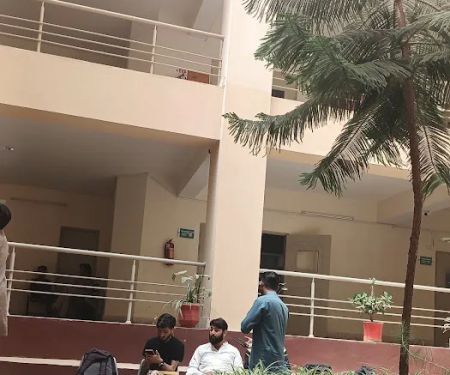 Department of CS & IT Hazara University Mansehra
4.0 (4 reviews)
Department of CS & IT Hazara University Mansehra
4.0 (4 reviews)
9,Floor 2, Department of Microbiology, Hazara University, Academic Block Rd, Pakistan
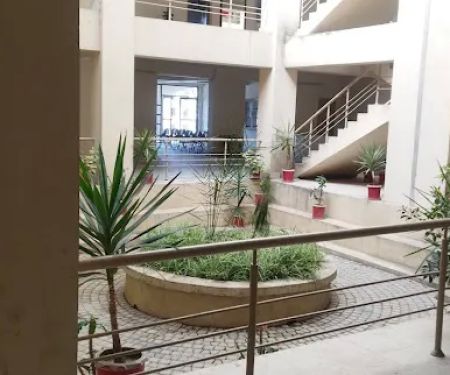 Department of Telecommunication
4.0 (9 reviews)
Department of Telecommunication
4.0 (9 reviews)
C793+Q67, Dhodial, Pakistan
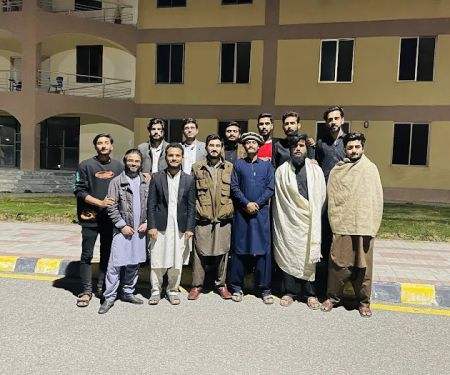 Psychology Department
4.0 (3 reviews)
Psychology Department
4.0 (3 reviews)
C793+M9P, Dhodial, Pakistan
 Hazara University Mansehra
4.0 (872 reviews)
Hazara University Mansehra
4.0 (872 reviews)
Dhodial, 21120, Pakistan
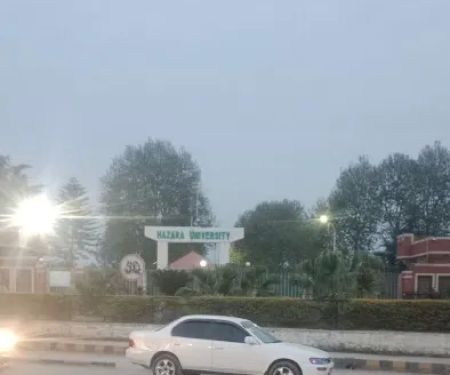 Biotechnology Department
5.0 (1 reviews)
Biotechnology Department
5.0 (1 reviews)
C792+JMM, Dhodial, Pakistan
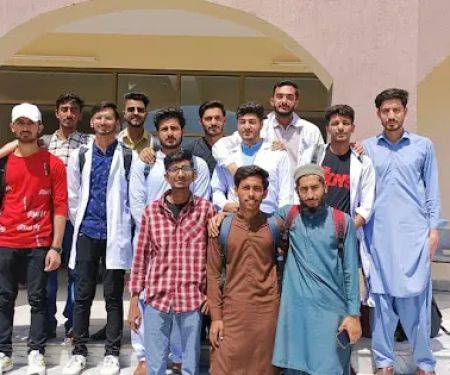 DEPARTMENT OF PHARMACY BLOCK 6
5.0 (2 reviews)
DEPARTMENT OF PHARMACY BLOCK 6
5.0 (2 reviews)
C793+GG9, Dhodial, Pakistan
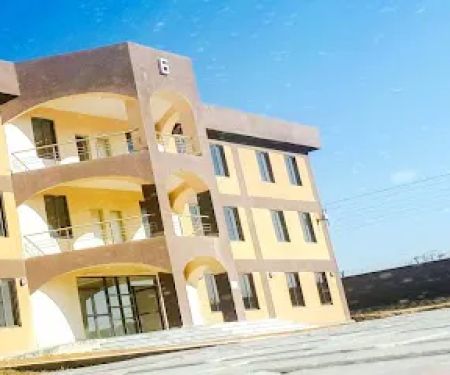 Department of Bioinformatics
4.0 (11 reviews)
Department of Bioinformatics
4.0 (11 reviews)
Ist Floor, Block 6 Hazara University Mansehra, Dhodial, Pakistan
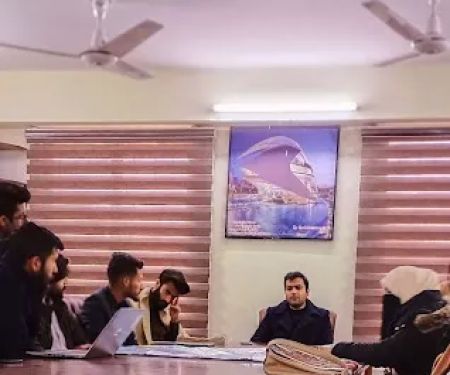 Department of Public Administration
5.0 (1 reviews)
Department of Public Administration
5.0 (1 reviews)
C793+93C, Dhodial, Pakistan
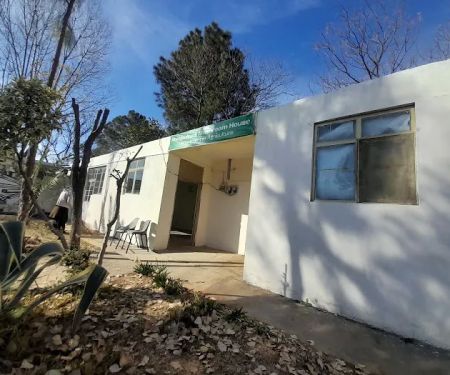 H.U Horticulture Mushroom House
4.0 (5 reviews)
H.U Horticulture Mushroom House
4.0 (5 reviews)
Faculty of Education, New Balakot City Rd, Dhodial, Pakistan
Categories
Popular
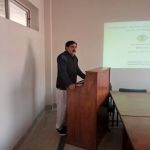 Department of zoology University of Malakand4.0 (3 reviews)
Department of zoology University of Malakand4.0 (3 reviews) GOVT. BOYS HIGH SCHOOL YARDAH BUSHEHRA0.0 (0 reviews)
GOVT. BOYS HIGH SCHOOL YARDAH BUSHEHRA0.0 (0 reviews)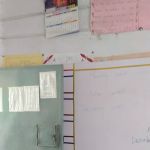 Government Primary School (GPS) No. 1 Pakha Ghulam, Peshawar0.0 (0 reviews)
Government Primary School (GPS) No. 1 Pakha Ghulam, Peshawar0.0 (0 reviews) GEMPS kangra colony no 20.0 (0 reviews)
GEMPS kangra colony no 20.0 (0 reviews)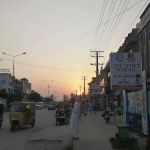 The spirit school Alipur Farash Islamabad0.0 (0 reviews)
The spirit school Alipur Farash Islamabad0.0 (0 reviews)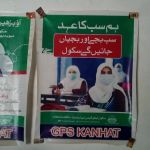 GPS Dhoke Kanhat0.0 (0 reviews)
GPS Dhoke Kanhat0.0 (0 reviews)Trending Blog Posts
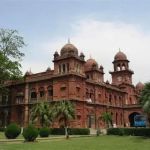 Most In-Demand Degrees in Pakistan 2025 – Top Fields for the Future
Most In-Demand Degrees in Pakistan 2025 – Top Fields for the Future Most In-Demand Degrees in Pakistan – What to Study in 2025 for a Future-Proof Career
Most In-Demand Degrees in Pakistan – What to Study in 2025 for a Future-Proof Career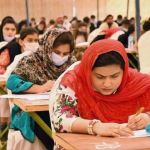 CSS 2025 Registration Deadline Announced by FPSC – Important Information for Aspirants
CSS 2025 Registration Deadline Announced by FPSC – Important Information for Aspirants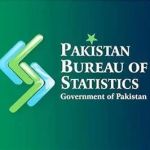 Pakistan Education Census 2025 to Be Conducted in August: What to Expect
Pakistan Education Census 2025 to Be Conducted in August: What to Expect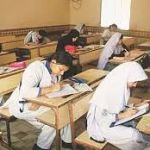 KP Inter Board Results to Be Announced District-Wise: What Students Need to Know
KP Inter Board Results to Be Announced District-Wise: What Students Need to Know CSS 2025 Registration Deadline Announced by FPSC: Key Details and Preparation Tips
CSS 2025 Registration Deadline Announced by FPSC: Key Details and Preparation Tips 